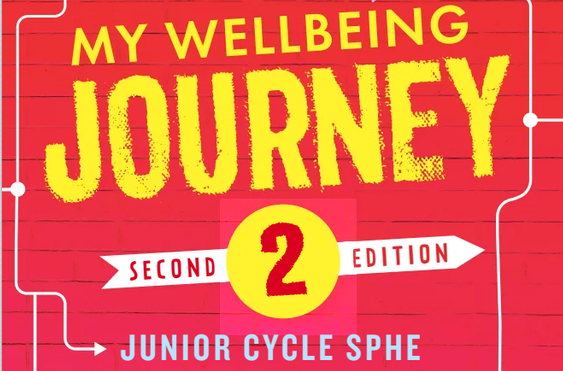Last week, a publisher issued an apology for the stereotypical portrayal of an Irish family in a textbook. The volume, which was withdrawn following public outrage, was produced for the new Junior Cycle course on Social, Personal, and Health Education (SPHE) introduced last year by the Department of Education.
A closer examination of these SPHE textbooks reveals even more serious concerns. One such example is “My Wellbeing Journey”, a text from a major publisher, authored by prominent SPHE teachers.
One of the authors is Eoghan Cleary, Assistant Principal at Templecarrig Secondary School, Co. Wicklow, who is often invited to comment on sex education on radio and television.
The second volume of “My Wellbeing Journey”, aimed at students aged 13–14, includes a lesson dedicated entirely to masturbation. In one of the exercises, labelled a “pairs activity”, students are presented with images of eleven animals and asked to guess, together with their classmates, how many of these animals engage in masturbation.
This activity is undeniably shocking, yet the book is freely available online for anyone to verify. See here.
Is animal behaviour really a good guide to human behaviour? Humans have reason and a moral sense. Animals do not.
Young students are also told that “Even babies and young children know it feels good to touch their own genitals.” This appears to be presenting babies and toddlers as sexual beings.
Another author of “My Wellbeing Journey” is Pam O’Leary, an SPHE teacher at Cork Educate Together secondary school.
In an interview about sex education some years back, Pam O’Leary stated: “I’m interested in teaching students about safety and health. Morality shouldn’t come into Relationship and Sex Education. It’s not about what students should do in any moral sense”. Would most parents agree with this view?
Accordingly, the “My Wellbeing Journey” textbook makes no direct reference to moral values, focusing instead on the concepts of ‘healthy boundaries’ and ‘safe spaces’. It suggests that choices and behaviours are acceptable as long as they are deemed “healthy and safe”. However, it is impossible to teach human relationships and sexuality without referencing ethical principles. Human beings inherently base their decisions on values and principles.
The textbook also makes no mention of marriage, which is perhaps unsurprising given that the National Council for Curriculum and Assessment, with the blessing of the Department of Education, removed references to marriage and parenting from the SPHE curriculum. Does Minister Norma Foley know this?
Textbooks and teachers are granted a certain degree of flexibility in covering topics outlined in the NCCA curriculum, nonetheless, there is no promotion of commitment or long-term relationships. These concepts are never presented as preferable to casual or short-term relationships. Instead, the message remains: it is all acceptable if it is “healthy and safe”. Again, what do parents think?
Unsurprisingly, the curriculum includes lessons on “gender identity”, which is presented as fact rather than as a contested ideology that separates being male or female from biological reality. The volume is so steeped in gender ideology that some of the expressions used sound ridiculous.
For example, in the section on puberty in Volume 3, the authors say: “Most typically, people with female-typical anatomy generally begin puberty at 11 years of age, and those with male-typical anatomy begin at 12 years of age”.
Girls are thus referred to as “people with female-typical anatomy”, and boys, of course, as “those with male-typical anatomy”. These convoluted expressions are used in the name of ‘inclusivity’, as, according to gender ideology, not all individuals with female-typical anatomy are women.
They are whatever ‘gender’ they identify as and, remember, nobody knows how many genders exist, if this ideology is correct.
Many parents likely disagree with this gender ideology. Are they aware that it is now the dominant philosophy framework taught in SPHE classes?
Are they aware of what else is in these SPHE textbooks, and also the key aspects of life that are missing?
















